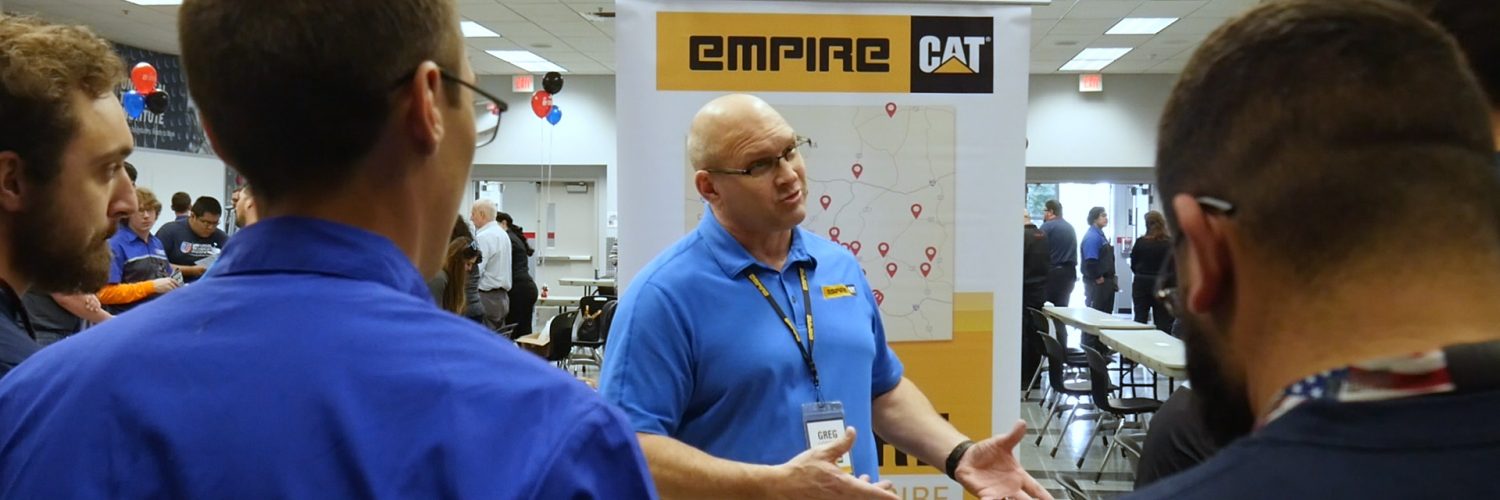Demand for workers with repair experience in auto-related industries continues to rise, according to employers and training program administrators—and that isn’t expected to change anytime soon.
“There’s a tremendous demand for people that are skilled in this industry, and it’s only getting worse,” said John Norlington, a representative from Texas-based Sewell Automotive. “It’s not getting better.”
There’s perhaps no better way to gauge the true extent of that demand than by browsing through the interactive job boards that hang in the hallways of Universal Technical Institute’s Avondale campus. Doing so allows UTI students to explore more than 6,000 open positions nationwide. According to Adrian Cordova, Regional Vice President of Operations at UTI, the list is updated monthly and only includes a portion of the total available positions.
Data from the U.S. Bureau of Labor Statistics paints a similar picture, predicting that there will be about 45,000 more positions in the industry in 2026 compared to 2016. It’s a drastic change, Cordova said, from the state of the auto industry only a decade ago.
“Back in the 2008-2009 timeframe where the economy was having significantly high unemployment, dealerships were doing consolidations and going back on the amount of job opportunities,” said Cordova. “In the last five years, the amount of job opportunities in the auto, diesel and transportation industries has gone tremendously to the other side of the equation.”
That demand is part of the reason why Sewell Automotive recruits students from Arizona, despite not operating any dealerships in the state. Norlington said that students who are coming out of UTI Avondale’s General Motors programs are valuable, and that Sewell has hired nearly forty such students so far.
“Their need is so large that they continue to expand in other areas,” Cordova said of Sewell’s search for talent across state lines. But Sewell is far from the only company looking to hire new workers—a recent job expo at UTI Avondale brought in major employers such as Tesla, Carvana, and Penske Truck Leasing, to meet prospective hires.
Because the demand for new workers is currently higher than the supply, students exiting some of UTI’s manufacturer-specific programs are often offered additional bonuses by employers upon signing a contract. These can range from tuition reimbursements to money for tool purchases, Cordova said. But even with these sorts of benefits, there’s still a huge shortage of workers.
“Those manufacturers, the demand that they have for technicians is so high that even when we are the number one provider to them, we are not even filling half of the need of technicians that they have across the country,” Cordova said.
Getting students interested in auto repair and technical programs can be a challenge, Cordova acknowledged, as the industry is competing for labor against a variety of other trade professions. That’s why he said he thinks it’s important to remind people that the industry is full of career opportunities, and not merely jobs.
That sentiment was echoed by Norlington, who said that “a lot of the perceptions about the automotive industry are incorrect.”
“If you start as a technician, that doesn’t mean you have to retire as a technician,” he said. “There’s a lot of other avenues—many of our technicians have moved up into management.”
RJ Martinez, a Branch Manager for Sunstate Equipment, also emphasized the potential for career growth in the equipment repair industry.
“We really believe in promoting within, so once someone gets on board, we don’t see someone as just a mechanic or an inside salesman,” he said. “We want to see how they can grow.”
If positions continue to remain unfilled, down the road that could lead to things like longer wait times for vehicle repairs, Cordova said—something which could become a major issue for businesses that rely on quick repairs for shipping products.
“Our hopes for the future of the industry are that people continue to value that skilled trades are a tremendous opportunity in this country,” he said. “What we need to continue to do as a society is really significantly value what they bring to our economy.”
















Add comment